To Set at Liberty: Essays on Early Christianity and Its Social World in Honor of John H. Elliott
£70.00
In this tribute 21 well-known practitioners of social-science criticism build on and advance various aspects of Elliott’s work and methodology.
John H. (Jack) Elliott, Professor Emeritus of Theology and Religious Studies at the University of San Francisco, is one of the founding figures of social-scientific criticism and its application to biblical interpretation as well as to the interpretation of other ancient literature.
In this tribute 21 well-known practitioners of social-science criticism build on and advance various aspects of Elliott’s work and methodology. Norman Gottwald retraces the evolution of social-scientific criticism and its significance, David Aune examines the term magic as a socio-religious category, Scott Bartchy writes on Paul’s tenuous authority in Corinth, Alicia Batten looks at the characterization of the rich in the Epistle of James, Stephen Black studies the ethnic identity of John Chrysostom’s congregation in fourth-century Antioch, Zeba Crook explores memory theory in Luke’s Gospel, Richard DeMaris applies ritual studies to Mark’s Gospel, Jonathan Draper examines the role of purity and pollution in the story of the rich ran and Lazarus, Dennis Duling explores smell as a neglected dimension of social-scientific studies in ancient and biblical literature, Philip Esler looks at the possible role of Psalm of Solomon 17 in the death of Jesus, David Horrell re-examines aspects of the social strategy of 1 Peter, Ralph Klein explores attitudes to imperial authority in Bel and the Dragon and Daniel, Stuart Love applies anthropological studies on spirit aggression to Luke’s Gospel, and James Mackey challenges traditional theological notions of Jesus’ divine identity as well as traditional historical interpretations of Jesus’ trial.
In other chapters, Bruce Malina examines the term ‘author’ and questions its appropriateness as a term for ancient writers, Halvor Moxnes looks at the historical Jesus beyond the traditional ethnic and nationalist identity models that have informed scholarship on the subject, John Pilch establishes a model for understanding the social and psychological development of ancient figures like Jesus, Richard Rohrbaugh looks at the role of genealogy in the New Testament and its world, Herman Waetjen argues that the Jubilee stands as background and context in the parable of the wicked tenants, Robert Wilken demonstrates the role and use of 1 Peter 2.13-17 in second-century martyr accounts, and Ritva Williams advocates an ideological critique in examining the parable of the shrewd steward.
Additional information
| table of contents | Stephen K. Black Introduction Norman K. Gottwald John H. Elliott: An Encomium David E. Aune The Use of the Term ‘Magic’ as a Socio-Religious Category in the Study of the Greco-Roman World and Early Christianity S. Scott Bartchy ‘Stickless’ in Corinth: How Paul Sought To Recover his Authority Alicia J. Batten The Characterization of the Rich in James 5 Stephen K. Black Ethnic Judeans and Christian Identity Formation in John Chrysostom’s Adversus Judaeos Zeba A. Crook Manufacturing Memory and Community: Luke 7.36-50 as a Test Case Richard E. Demaris The Gospel of Mark as a Therapeutic Ritual Script Jonathan A. Draper Disease, Table and Economy in Luke 16.19-31 Dennis C. Duling Following your Nose: Social Historical and Social-Scientific Directions in New Testament Osmology Philip F. Esler Beware the Messiah! Psalm of Solomon 17 and the Death of Jesus David G. Horrell ‘Honour Everyone…’ (1 Pet. 2.17): The Social Strategy of 1 Peter and its Significance For Early Christianity Ralph W. Klein Resist the King! The Attitude Toward the Emperor in Bel and the Dragon and in Daniel 1–6 Stuart L. Love Spirit Aggression in the Gospel according to Luke James P. Mackey What Do the Twin Trials of Jesus Tell Us about Who and What He Was and Was Not? Bruce J. Malina Were There ‘Authors’ in New Testament Times? Halvor Moxnes Jesus beyond Nationalism – in Light of Terrorism John J. Pilch Cross-Cultural Psychology and the Bible: A Model for Understanding Jesus’ Psychological Development Richard L. Rohrbaugh The Social Function of Genealogies in the New Testament and its World Herman C. Waetjen Intimation of the Year of Jubilee in the Parable of the Wicked Tenants Robert L. Wilken 1 Peter 2.13-17 and Martyrdom Ritva H. Williams The Interests of the Shrewd Steward and his Interpreters |
|---|---|
| author | |
| authors | |
| editors | |
| isbn | |
| list price (paperback) | |
| page extent | |
| publication | |
| publication date | |
| series | |
| table of contenta | |
| version |

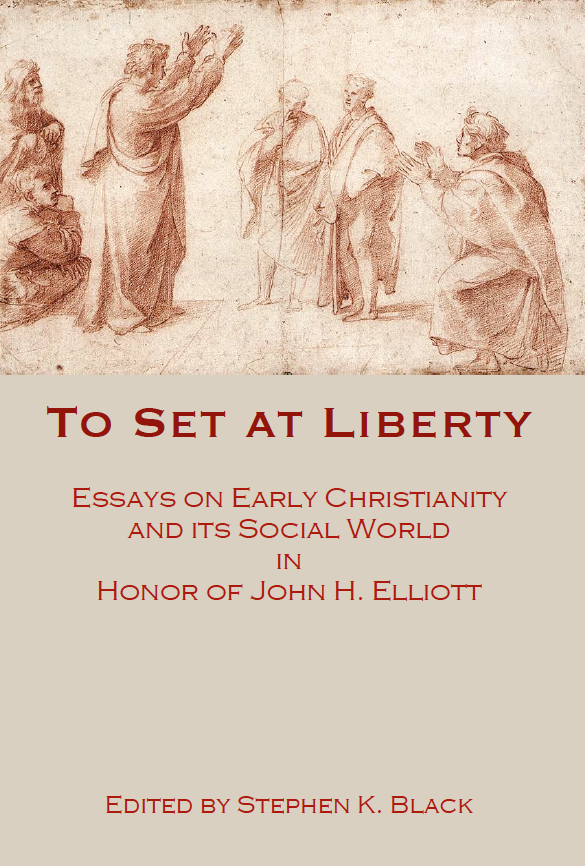



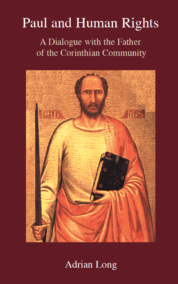
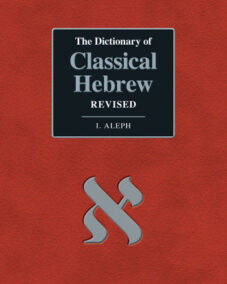

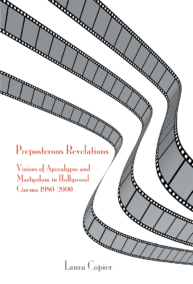
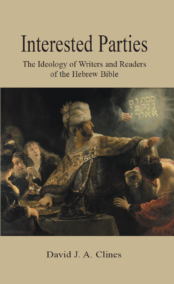

Carolyn Osiek, Review of Biblical Literature. –
This tribute to Jack Elliott, Lutheran pastor, scholar, and champion of social justice with his feet as well as his pen, is edited by one of his former students, who writes the introduction. It then launches with Norman K. Gottwald’s encomium and biographical sketch of the honoree that traces Elliott’s development from scholarship on 1 Peter to immersion in social-science interpretation to the project on Bible and Social Justice recently launched by Elliott, Gottwald, and Waetjen. Twenty essays by colleagues follow, all beginning with a personal recollection of the contributor’s relationship with Elliott as colleague, mentor, and/or inspiration. True to Elliott’s penchant, many of the essays incorporate elements of the social sciences.
Carolyn Osiek, Review of Biblical Literature. –
This tribute to Jack Elliott, Lutheran pastor, scholar, and champion of social justice with his feet as well as his pen, is edited by one of his former students, who writes the introduction. It then launches with Norman K. Gottwald’s encomium and biographical sketch of the honoree that traces Elliott’s development from scholarship on 1 Peter to immersion in social-science interpretation to the project on Bible and Social Justice recently launched by Elliott, Gottwald, and Waetjen. Twenty essays by colleagues follow, all beginning with a personal recollection of the contributor’s relationship with Elliott as colleague, mentor, and/or inspiration. True to Elliott’s penchant, many of the essays incorporate elements of the social sciences.